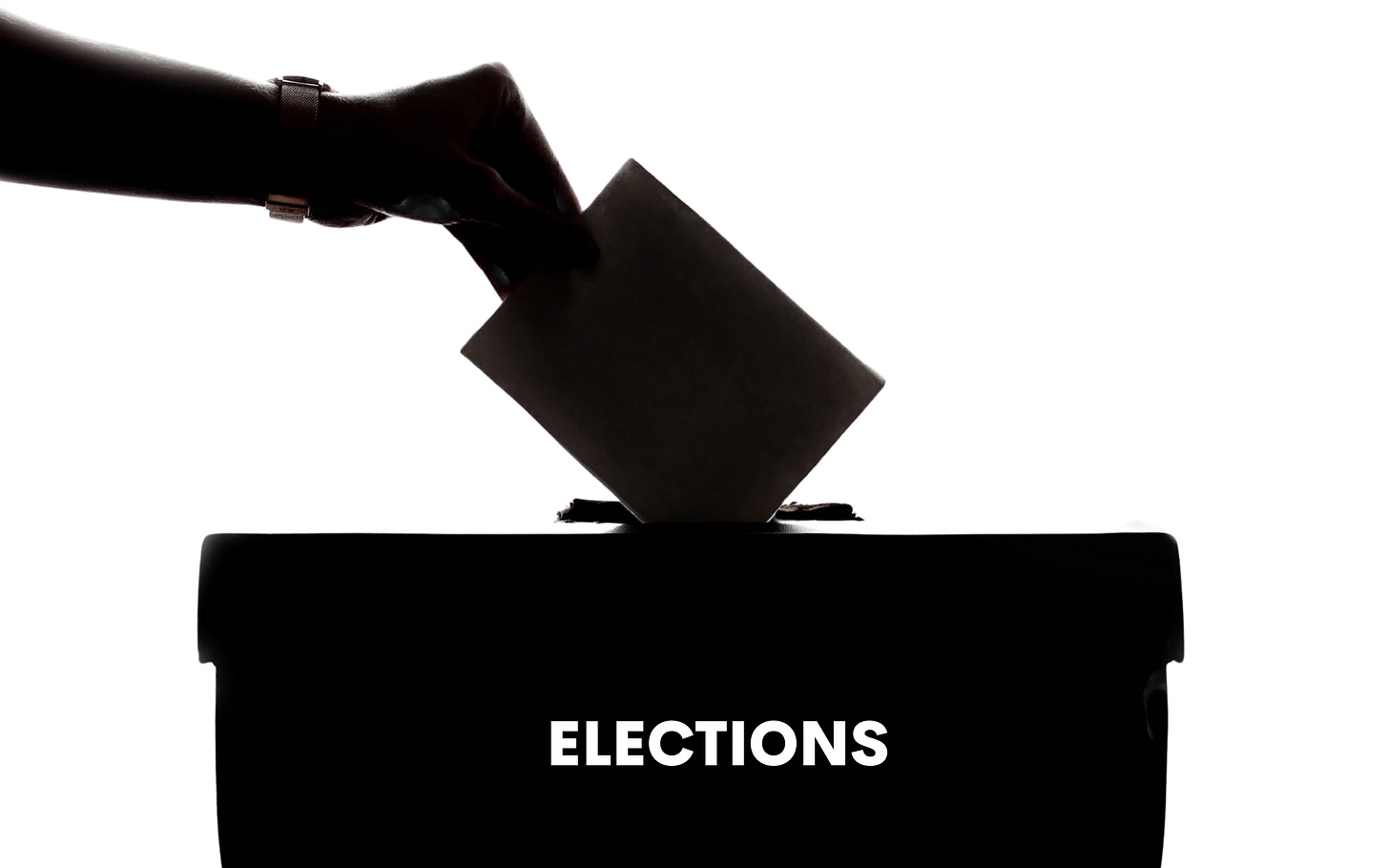Elections in Argentina and Switzerland
Both countries are an ocean apart in many ways, but the phenomenon of populism lingers in both.
On both sides of the Atlantic voters headed to the polls last weekend in two significant elections. Argentina, with a population of around 47 million people, is South America’s second-largest economy but is currently experiencing an existential economic crisis with inflation running at almost 140% and the national currency, the peso, in sharp decline sinking to a new low in recent weeks. On the other side of the pond is Switzerland. With a population of nearly 9 million, it is a smaller and wealthy European country, surrounded by the European Union, where inflation is low at under 2% and the currency, the Swiss franc, is very safe and strong.
But despite these economic differences, these two countries that went to the polls on the same day last weekend do have some political similarities. They are both democracies with a federal system and a multi-party system that uses proportional representation to elect members to parliament, although they differ in that Argentina operates a presidential system, whereas Switzerland has a parliamentary system that incorporates a significant amount of direct democracy. In last week’s elections, both countries also shared a common political trend that seems to linger almost everywhere elections take place these days, the political phenomenon of populism.
Populism is embraced by some as a good thing as ostensibly it is supposed to be about letting the real people decide and take back control from perceived political elites. Readers of this newsletter know that I am not convinced by the veracity of such populist arguments. Populism can take on different forms and arise from different ends of the political spectrum, but at its core, it is an election strategy more than anything else. More often than not populist politicians offer simplistic solutions to complex problems in order to get elected. They may not consider themselves as populists but nonetheless, by being simplistic in their policy approach they sometimes leave a trail of destruction in their wake. The economy and/or migration have proven to be among the hottest winning topics to focus on in a populist election campaign.
Telling the population what they want to hear rather than consulting with them about what actually really needs to be done (also known as political leadership) usually proves rewarding on election day, but that does not necessarily mean that people's lives improve or problems really do get optimally solved once they get elected into office. A populist rise to power and his or her ability to radically change a country’s political direction really depends a lot on how a particular country's electoral system distributes power.
In Argentina, the big focus in the run-up to last weekend’s election was on the Trump / Bolsonaro-like candidate, Javier Milei, the popular libertarian economist and rookie lawmaker known for his Elvis-like haircut and going around Argentina wielding a chain-saw as he promises to cut public and social spending in a country with over 40% of the population now living in poverty. He obviously has support, he advocates libertarian policies that may look good on paper and will no doubt benefit some, but there is no guarantee that those benefits will trickle down to Argentinians who are the worst off but still want change.
Recent history shows that libertarian-orientated economic policies such as small government, low taxes, deregulation, and privatisation can also lead to further political and social problems such as environmental damage, inequality, economic instability, and a new populist backlash from disappointed voters. In some respects, Milei seems to have arrived in a time machine from a different era as libertarianism seems to be going out of fashion elsewhere these days as the role of government is being reinvigorated, regulation is deemed necessary, and the need for increased taxation in some sectors is advocated.
Milei who has railed against Argentina’s political elite or ‘political caste’ is very much a typical populist. If elected, he has a simple solution for dealing with the complex problem of Argentina’s chronic inflation and currency problems; just get rid of the central bank, ditch the peso and adopt the U.S. dollar. Even before the election, he already seems to have left a trail of destruction in his wake. His trash-talking of the peso has already been reported to have likely exacerbated Argentina’s economic problems.
Moreover, he also has other controversial views. He is reportedly a sceptic of human-induced climate change, takes an anti-abortion stance in a country where abortion is now available to women, insulted the Pope in a country that is predominately catholic, supports the loosening of gun ownership restrictions, and the idea of selling human organs.
On foreign policy, he recently told Spain’s El Pais that his natural allies are the United States and Israel and that he doesn’t want anything to do with Cuba, China, or North Korea. Ignoring China would be a big departure for Argentina, just last week China activated a $6.5 billion swap line with Argentina’s central bank which led the outgoing President Alberto Fernandez to say that "Every time we went through difficult times, Xi Jinping's government gave us its support". On the issue of the Falkland Islands, Milei told El Pais that he supports a Hong Kong solution.
Many expected Milei to win Argentina’s election last weekend but in the end, official election results confirm that he came second with just under 30% of the vote behind Sergio Massa, the current Minister of the Economy, who came first with just over 36% of the vote in a five-candidate race. For Massa, this was quite an achievement, perhaps even a miracle, considering that the Argentinian economy is in such dire straits right now and he is the economy minister of the outgoing centre-left government.
Still, this election could be yet another one of those elections where the voter has to choose between who is the least worst for the job. In comparison to Milei’s right-wing populism, Massa could in some respects be considered as more of a centralist candidate. He has promised to form a government of national unity if elected. However, he is also a Peronist candidate which in itself tends to be a form of left-wing populist in nature with a strong emphasis on charismatic leadership and appealing to the emotions of citizens.
Argentina used to be one of the richest countries in the world and some have concluded that populist Peronist policies contributed to an economic decline that may not otherwise have been the case. Moreover, in the run-up to the vote, Massa reportedly endeavoured to put money in voters’ pockets and played on the emotional fear of what Milei’s social policies would cause for ordinary Argentinians. It seems that his plan worked. But all is not over yet, we will not know the full outcome of this presidential election campaign until after both candidates face a run-off election on the 19th of November.
In Switzerland, the issues were rather different. All is calm on the macroeconomic front, yet Switzerland’s eurosceptic right-wing populist party, the Swiss Peoples Party (SVP), have done very well in the recent elections securing the largest vote (28.6%) and the most seats (62 out of 200) where the Greens experienced a decline.
The cost of health insurance was reported as a big issue in this election, but a post-election analysis showed that migration was the top issue and one which the SVP had put at the centre of its campaign which resonated particularly well with middle-aged voters and those with a lower level of education. The party’s immigration policy argues that the Swiss economy has always been dependent on foreign workers but since 2007 the population has exploded due to uncontrolled immigration. It has put the focus on keeping the population below 10 million in order to avoid an argued strain on the quality of life, prosperity, nature, and infrastructure. They argue that there is the feeling of being more and more foreign in one's own country.
However, despite topping the poll in Switzerland, the Swiss People's Party will not have things all their own way or have the opportunity to radically change the direction of their country. This is because of the unique way that the government system in Switzerland distributes power between the four majority parties. These parties, as part of a coalition, form the 7-member Swiss government, officially known as the Federal Council. Based on the election results, the SVP will have to share power with the social democrats, the centralists, and the liberals when the new Federal Council is elected in December. In fact, it is fair to say that before going to vote last Sunday, the Swiss already knew they were not in for much radical change despite the increased popularity of the SVP.
Meanwhile, back in Argentina, we do not know yet who will be the political face of Argentina in the world for the next four years, but we do know that whichever candidate does prevail in November will not have things all their own way either. They will have to work with others to get things done because based on seat projections their parties/political grouping will not have majorities in the Chamber of Deputies or Senate. This is particularly the case for Milei whose party/political grouping won relatively few seats. It's worth noting that not all seats were recently up for reelection, adding to the complexity of the situation.
Populism is probably going to remain a recurring phenomenon in democratic elections around the world for some time to come, particularly when it continues to prove a successful election strategy for politicians willing to use such an approach. This is particularly the case in our era of social media where it is much easier to connect with voters' emotions and advocate simplistic black-or-white solutions to complex problems which on the surface seem to engage and make a lot of sense to some voters.
However, in reality, good government policy often requires a lot of nuance. How different electoral systems distribute power will, at least in some countries, continue to go some way towards reigning in populist politicians and their parties from running amok with radical policies which could, if they had sufficient power, cause long-term damage to the fabric of their liberal democracies which always require balance, consultation, responsibility, and sometimes choices that are just not that popular or interesting in order to keep them strong.
#politics #election #argentina #switzerland #populism #liberalism





As always, I would like to hear what you have to say. Drop me a few lines and let me know your thoughts on today's subject.